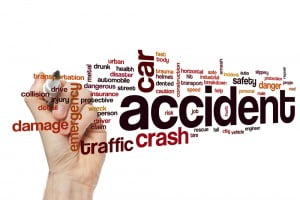What is the Safest Seat on the Plane?
Thankfully, plane crashes are rare and it is often said that it is the safest form of transport. Indeed there were no commercial plane crashes at all during 2017. This is confirmed in a recent article from Reuters, the safest year on record for commercial travel.
But did you know the majority of plane crashes are survivable so you have a good chance of escaping a plane crash alive and well. So it is worth taking time to read this article, it could save your life!
This evidence comes from a Dutch firm To70 Aviation Consultants in charge with safety assessments on plane travel world wide. Thus no fatal accident claims were made via air travel in 2017. A good year to fly.

How to survive a plane crash disaster
Whilst the UK is now looking towards their holidays this summer, there are articles that provide a survival guide in the event of a plane crash.
The instructions from Wikepedia concerning the ‘Brace Position‘ is below:
- “Bend over! Stay down!”
- “Brace for impact! Prepare for crash-landing, prepare for crash-landing! Heads down! …
- “Brace!” ( repeated until the aircraft lands.)
- “Brace! Brace! Stay down!”
- “Brace, brace! Heads down, grab your ankles!”
- “Brace! Brace! …
- “Get your heads down, stay down!”
- “Heads down, grab ankles, stay down.”
We then come to the guide offered by the Telegraph on how to survive a plane crash.
The article in the Telegraph points to some fundamental facts:
- The first air disaster fatal accident claims was in 1908.
- The vast majority of plane crashes are survivable.
- Of 568 plane crashes in the US 1993-2000 – a staggering 90% of passengers and crew survived the air crash.
- Contrary to popular belief, it says that aircraft travel is not the safest mode of transportation.
- Travel by rail is said to be the safest form of travel in terms of accidents per journey.
- A third of fatal plane fatalities do not survive due to fire and smoke.

The survival guide offered by the Telegraph essentially informs you to listen to the safety announcements on board and essentially remember the drill by the crew for instance:
- Know where your nearest exit is on the plane.
- That the nearest exist could be behind you.
- Form the ‘brace position’ prior to impact.
- Put on your oxygen mask prior to putting the mask on your children.
- Stayed buckled up on the plane when seated.
According to the Aviation Safety Network ASN the safest seat on the plane are those who are sitting within 5 rows of an emergency exit. Those passengers with this zone have the greatest prospects of surviving a fatality from a plane crash according to a study in 2008.
What about the front of the Plane?
Usually for first class passengers, but those who sit at the front of a plane are more likely to die in a fatal accident.
What about Aisle or Window?
The window seat is marginally worse than the aisle seat. The Greenwich study advised that the Aisle seat was 65% better chance of surviving death in a plane crash than a window seat at 58%.
So the safest plane seat?
This is the middle row of the plane at the rear within 5 rows of an emergency exit. Make sure you know where the emergency exit is, take the Aisle seat and always were your seat belt.
Apart from all that advice, please ensure you enjoy your holiday or business trip!




